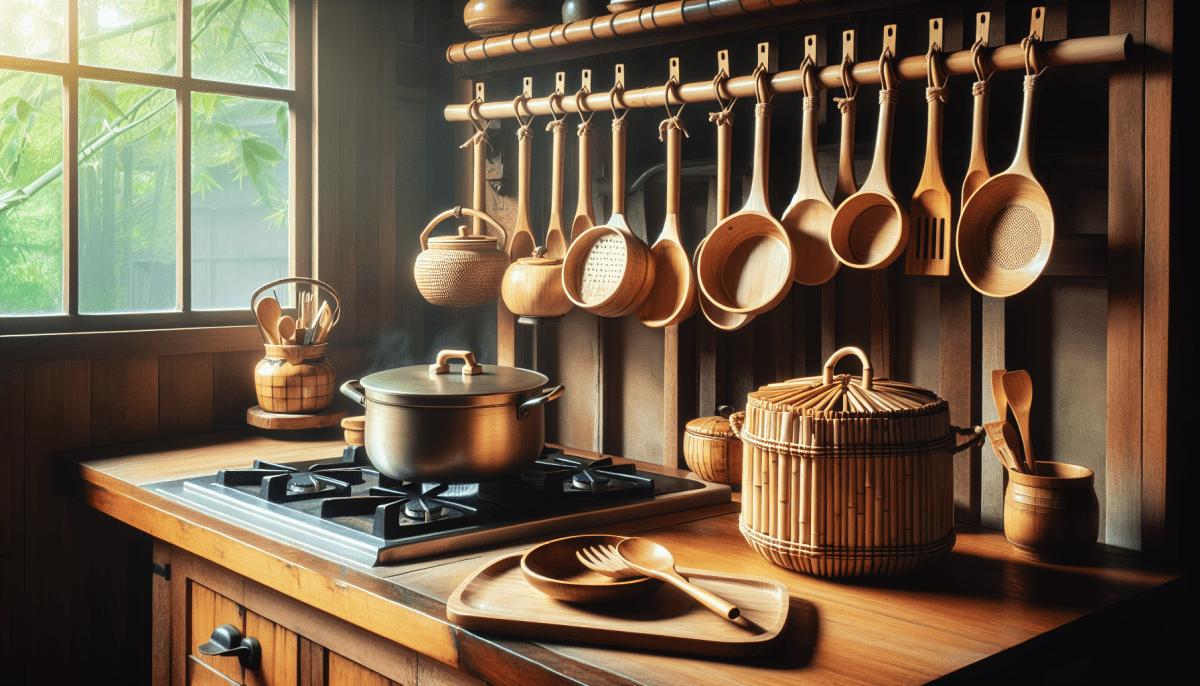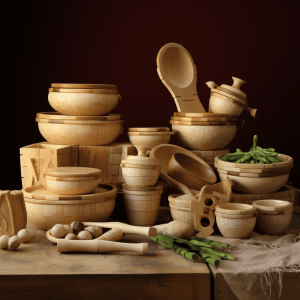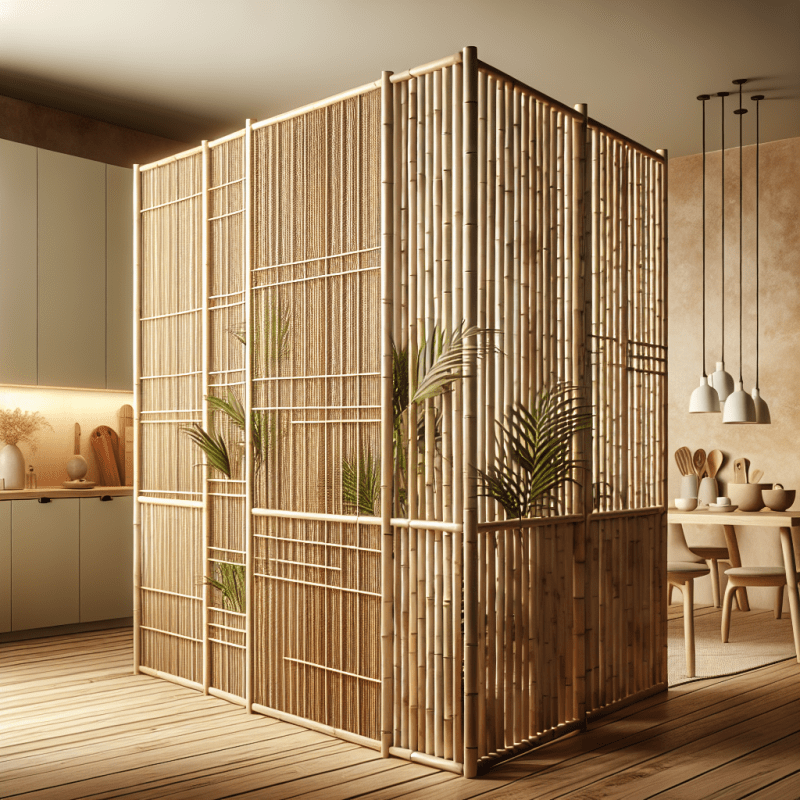When it comes to eco-friendly and sustainable cookware options, bamboo cookware has gained significant popularity in recent years. Many people are drawn to its natural appeal and the perception that it is a durable and long-lasting choice. However, it is essential to debunk the misconception that bamboo cookware is inherently long-lasting.
While bamboo itself is a highly renewable resource, its durability as a cookware material is often exaggerated. Bamboo cookware is typically constructed using thin layers of bamboo fibers that are bonded together. Although this construction may offer some resistance to warping and cracking, it is not immune to wear and tear. With regular use, bamboo cookware can easily develop scratches, stains, and even mold if not properly cared for.
Moreover, bamboo is a porous material, which means it can absorb liquids and odors. This can be particularly problematic when it comes to cooking tasks that involve strong flavors or colorful ingredients. Over time, the absorbed odors and colors can be difficult, if not impossible, to remove, impacting the overall quality of your cooking and leading to a shorter lifespan for your bamboo cookware.
While bamboo cookware may have its advantages, it is vital to recognize that its longevity is not as long-lasting as some may think. Regular maintenance, including proper cleaning and drying, is crucial to extend the lifespan of the cookware. Ultimately, it is essential to weigh the pros and cons of bamboo cookware, considering both its eco-friendliness and its limitations, before making a decision.
Assessing Bamboo Cookware: Unveiling its True Lifespan
Bamboo cookware has gained popularity in recent years due to its eco-friendly and sustainable nature. Its durability and longevity are among the factors that contribute to its appeal. However, it is essential to assess whether bamboo cookware is truly long-lasting or merely a passing trend in the culinary world.
One of the primary considerations when determining the lifespan of bamboo cookware is its construction and quality. Bamboo is known for its strength and durability, but the manufacturing process can significantly impact its longevity. High-quality bamboo cookware undergoes careful crafting, ensuring that it is free from defects and weak spots. Additionally, the application of a food-grade sealant contributes to its longevity by preventing moisture absorption and potential mold growth.
Another aspect to consider when evaluating the lifespan of bamboo cookware is proper care and maintenance. Like any other type of cookware, bamboo requires attention to ensure its durability. It is crucial to clean bamboo cookware immediately after use, avoiding prolonged exposure to water and harsh detergents. Applying a natural oil, such as coconut or olive oil, periodically helps maintain the wood's moisture and prevents cracking. Regularly inspecting for any signs of wear or damage is also important to address potential issues early on.
Lastly, the lifespan of bamboo cookware can vary based on its usage frequency and the type of cooking it is exposed to. While bamboo is generally a sturdy material, prolonged exposure to high temperatures and constant usage may cause it to deteriorate faster. Therefore, using bamboo cookware for low to medium heat cooking, such as steaming or simmering, is recommended to ensure its long-lasting performance. Additionally, avoiding sharp utensils and rough scrubbing pads when cleaning can prevent unnecessary scratches or damages.
The Sustainability Conundrum: On Bamboo Cookware's Longevity Claims
When it comes to sustainable alternatives in the kitchen, bamboo cookware has gained significant popularity in recent years. Proponents highlight its eco-friendly nature, as bamboo is a highly renewable resource that grows quickly, requires minimal pesticides, and can sequester carbon dioxide. However, amidst the buzz around bamboo cookware, questions arise regarding its longevity claims.
While many manufacturers market bamboo cookware as long-lasting and durable, some skepticism persists. Bamboo, known for its strength, flexibility, and anti-bacterial properties, seems like an ideal material for cookware. However, when used in direct contact with heat and constant moisture, such as in a cooking pot or a chopping board, concerns about its durability arise. Critics argue that bamboo cookware may be prone to cracking, warping, or deteriorating over time, compromising its purported longevity.
Another aspect to consider is the manufacturing process of bamboo cookware. The production often involves treating the bamboo with adhesives and resins to mold it into the desired shape and increase its durability. While these processes may enhance the bamboo's strength, they can also introduce potential environmental hazards. The use of certain chemicals in the manufacturing process may undermine the overall sustainability of bamboo cookware, warranting a closer examination of its environmental impact.
As consumers, it is essential to evaluate longevity claims critically and make informed choices. While bamboo cookware undoubtedly offers some eco-friendly benefits, it is crucial to assess the trade-offs and consider the potential environmental impact of its manufacturing process. Additionally, researching customer reviews and seeking feedback from those who have used bamboo cookware can provide insight into its actual durability. By understanding the sustainability conundrum surrounding bamboo cookware, individuals can make more responsible decisions about its use in their kitchens.
Beyond the Hype: Examining the Real Durability of Bamboo Cookware
Bamboo cookware has gained immense popularity in recent years due to its eco-friendly and sustainable nature. It is often touted as a long-lasting alternative to traditional cookware materials. However, it is crucial to examine the real durability of bamboo cookware beyond the hype.
While bamboo itself is known for its strength and flexibility, the process of transforming it into cookware involves certain treatments that may impact its durability. Most bamboo cookware is treated with heat and pressure to enhance its resistance to moisture, insects, and mold. This treatment helps prolong the lifespan of the cookware when used and cared for properly. However, it is important to note that bamboo cookware is not indestructible and may deteriorate over time with repeated use and exposure to extreme heat.
Another factor to consider is the quality of construction. Bamboo cookware comes in various forms such as cutting boards, utensils, and steamers, each requiring different construction techniques. The quality of the adhesive used to bind the bamboo fibers together plays a significant role in determining the durability of the cookware. Inferior quality adhesives may weaken over time, leading to cracks, splinters, or even complete breakage.
Ultimately, the durability of bamboo cookware depends on how it is used and maintained. Proper care, such as handwashing, drying thoroughly, and avoiding exposure to extreme temperatures, can prolong its lifespan. While bamboo cookware can be a durable and long-lasting option for the kitchen, it is important to understand its limitations and make an informed decision based on individual needs and circumstances.
Bamboo Cookware
Sustainable and Stylish Cookware to Elevate Your Kitchen Experience
Product information
Product Review Score
4.38 out of 5 stars
126 reviews


